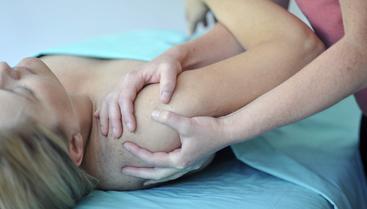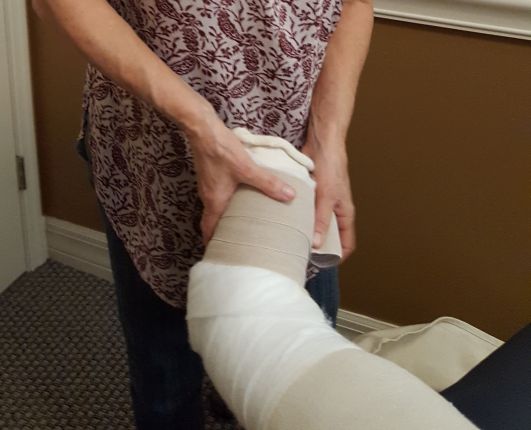Nancy Strand is a Certified Lymphedema Therapists (CLT), having undergone intensive training in Manual Lymphatic Drainage and compression therapy for the management of Lymphedema.
Manual Lymphatic Drainage
Manual Lymphatic Drainage is a gentle, relaxing form of therapy that helps stimulate the lymph fluid movement through your body.
 Some of the benefits include:
Some of the benefits include:
- Reducing post-operative swelling, especially after plastic surgery
- Help in the healing of sprains and strains
- Decongesting sinuses
- Reduction of excessive water (edema)
- Improving arthritis
- Improving skin conditions
- Improving sleep
In addition to applying Manual Lymph Drainage therapy in these situations above, Manual Lymphatic Drainage therapy is highly recommended for:
- Fibromyalgia
- Chronic Fatigue Syndrome
- Migraines
- Overall Body Detox
Symptoms of a sluggish lymphatic system may include:
- Sinus congestion
- Illness
- Skin breakouts
- Premature aging
- Heavy, painful menstrual periods
- Allergies
- Joint pain
Note: There are contraindications to receiving Manual Lymph Drainage therapy. You will be asked to provide medical information prior to your first session to make sure the therapy is appropriate for you.
Lymphedema
Lymphedema is an unhealthy accumulation of lymph fluid in the body. When extra fluid builds up, it creates swelling, usually in an arm or leg.
Lymphedema can result from injury, surgery, cancer treatment or is sometimes a hereditary disorder. It can lead to infection and pain. The most common cause of Lymphedema in the U.S. is breast cancer treatment (any that involves damage to or removal of lymph nodes). Once you have lymphedema, it can be managed, but not cured. Therefore, it is important to prevent it from occurring.
Treatment consists of:
- Manual Lymphatic Drainage

- Compression bandaging
- Therapeutic exercises
- Skin care
- Patient education
- Compression garments
Depending on the stage or progression of the disorder, the plan of care is determined individually and may require intensive phase treatments 3 -5 times/week to decrease swelling and progress to compression bandaging as soon as possible. Intensive therapy is followed by a second, individualized management phase of treatment that is designed to continue improvement.
Don't hesitate to contact me to discuss your case.
If you suspect you have lymphedema, schedule a free consultation.
